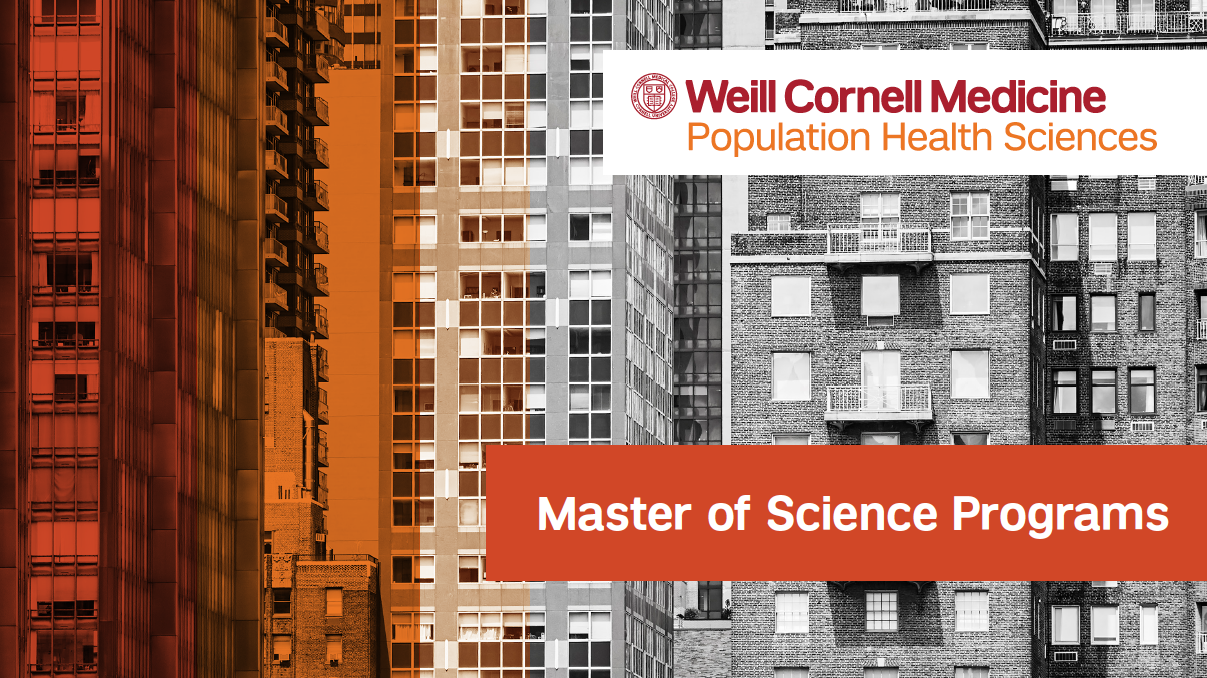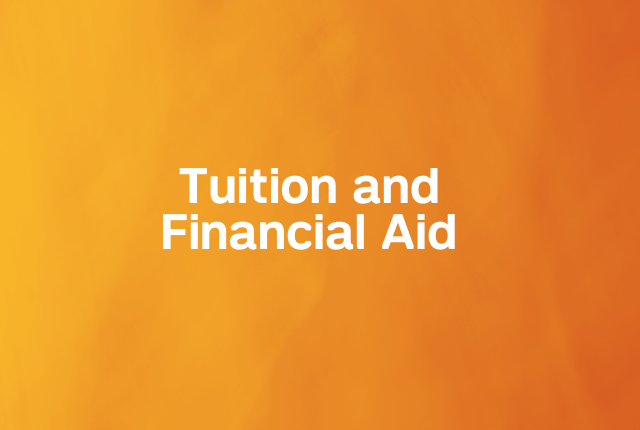Thank you for your interest in our graduate degree programs. Applications are now open.
Prerequisites
Admission to graduate degree programs in Population Health Sciences at Weill Cornell Medicine requires that applicants hold a baccalaureate degree from an accredited college or university. Individual programs might have specific and additional requirements for admission which are listed below.
MS in Biostatistics & Data Science
The MS in Biostatistics and Data Science program welcomes curious, motivated applicants who want to use data to improve health and advance scientific discovery. Our students come from a wide range of academic backgrounds, from quantitative disciplines like mathematics, statistics, data science, computer science, and engineering to fields such as biology, public health, and the social sciences, with strong quantitative skills and a commitment to making an impact through data.
We recommend applicants to have at least two semesters of calculus including multivariable calculus, one course in linear algebra, one probability or statistics course, and some programming experience (R, Python, MATLAB, or a similar language). Strong applicants missing one or two of these prerequisites may still be admitted, with the expectation that the necessary preparation will be completed before or early in the program. Free online courses in R and Python are offered to admitted students who have limited programming experience, and can be completed during the summer before the program begins.
Our admissions process is holistic. In addition to prior coursework, we consider research experience, programming skills, motivation, and the ability to work across disciplines. GRE scores are optional; strong quantitative preparation and demonstrated analytical ability are more important indicators of readiness. We value diversity of thought and experience and welcome applicants from all backgrounds who share our goal of improving health through data.
MS in Health Informatics
Among our current students, some excel in the computational aspects of informatics such as statistics, predictive analytics, natural language processing, or software development. Others specialize in the managerial, clinical, and sociotechnical aspects of health informatics. We welcome this diversity in our student population, and seek students who can understand both aspects of health informatics.
Quantitative reasoning: Every applicant must demonstrate strength in quantitative reasoning through excellent performance in undergraduate mathematics or statistics coursework, high scores on standardized tests, or both.
Computer Programming: All accepted students must be prepared to do some computer programming as part of their statistical and informatics methods courses. The strongest applicants have taken at least one undergraduate-level computer science or basic programming course and have some experience with a programming or scripting language such as R, Java, Python, or SAS. For those who have not taken relevant courses as an undergraduate, successful completion of high-quality online courses may be viewed favorably.
Healthcare or Biomedical Sciences: Previous coursework or work experience in clinical healthcare, biomedical sciences, or public health is viewed very favorably. We routinely welcome physicians, nurses, and other health professionals to our program.
Please Note: all accepted students who do not have previous experience with the R programming language will be required to complete a self-paced course on R during the summer before classes begin.
MS in Health Policy and Economics
Students applying to the MS in Health Policy and Economics program should have a bachelor's degree from an accredited college or university with a strong GPA, along with demonstrated leadership and communication skills. Standardized test scores are not required for our program, though some applicants do elect to take the GRE and GMAT exams.
Our students come from diverse educational backgrounds, including biological sciences, economics, other social sciences, and medicine. Successful applicants generally have some exposure to health care or health policy through coursework, internships, or employment. While many students have previous programming experience in SAS, Stata, or R, this is not required; we provide extensive training in these statistical programs. However, applicants must have completed at least a basic statistics or econometrics course before entering the program.
Certificate Program
Students applying to the certificate program should have a bachelor's degree from an accredited college or university with a competitive GPA and strong quantitative skills. Standardized test scores are not required.
Program Brochure

Fall 2026 Application Deadlines
Early Consideration Deadline
ALL PROGRAMS – Monday, December 1, 2025
Scholarship Consideration Deadline
ALL PROGRAMS – Sunday, February 1, 2026
Final Application Deadline
ALL PROGRAMS – Wednesday, April 1, 2026




